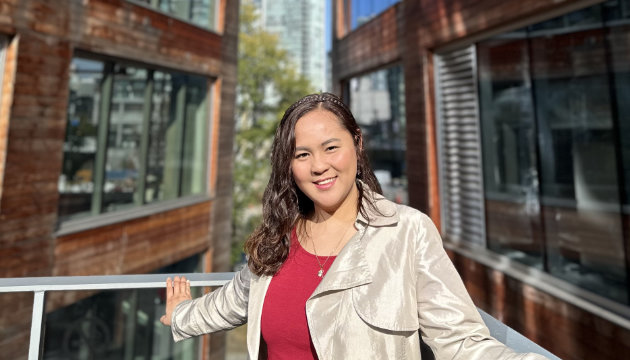If the last couple of years made you feel that they were a precursor to an apocalyptic event, you are not alone. Extreme weather marked almost every part of the globe with hurricanes and typhoons unseasonably hitting areas when residents are not prepared for such and drought in areas where entire crops are destroyed.
Add to that mix is the rise of COVID-19, now mutating in variants scientists can hardly keep track of. “Catastrophic” is perhaps the closest adjective to describe these recent events.
In British Columbia in the summer of 2021, temperatures reached over 40 degrees Celsius creating a rare “heat dome” that caused almost 600 deaths, 70 percent of which were reported to be those of 70 years and older. In November, flooding forced residents of the Fraser Valley to move out of their homes and farmers to lose crops and farm animals. In December with the uncharacteristic cold arctic flow, the Western provinces’ homeless population was at risk.
Just recently in the Philippines, typhoon Odette (international name Rai) hit parts of Visayas in the middle of December – at a time when the gentle Amihan winds, often characterized by cool and dry temperatures with little or no rainfall, are known to remain the central and western part of Luzon and Visayas from October to late March, hence Christmas in the Philippines is one associated with sweater weather. The hardest hit, as anticipated, are our countrymen who lived in poorly built shanties and had very little, to begin with.
In November of 2019, the United Nations General Assembly (UNGA) passed a resolution to declare year 2022 as the International Year of Basic Sciences for Sustainable Development. On December 2, 2021, the UNGA invited all Member States to “observe and raise awareness of the importance of basic sciences for sustainable development.” The resolution aims to support the United Nations’ 2030 Agenda, a vision adopted in 2015, for the sustainable development of all the world’s populations. Its ambitious goals are to eliminate extreme poverty, reduce inequality and protect the planet.
The resolution is an acknowledgment that the solutions to the calamities humankind are experiencing are all rooted in basic sciences. The International Year of Basic Sciences for Sustainable Development 2022 aims to highlight the links between basic sciences and sustainable development goals (SDG). It lists 17 SDGs which count, among others, eliminating poverty and climate action. Basic sciences are touted to “provide the training skills and know-how necessary for the application of innovations that countries need to move from general goals to effective actions.”
The goals of this almost unheard of resolution are admittedly lofty given the disparity among rich and poor nations. But this is an opportunity for Canadian Filipinos to actually shine.
Canadian Filipino Net (CFNet) has featured groups and individuals that excel in the field of science: Dr. Jesse Ronquillo in the aquaculture industry, young scientist Ann Makosinski whose rise to fame involved her invention of the hollow flashlight, Phil de Luna who heads Canada’s National Research Council Canada’s (NRC) Energy Materials Challenge Program, University of British Columbia medical researcher Mary de Vera who led major research efforts on colorectal cancer, global health professional Krisha Quiambao, and Pueblo Science led by Dr. Mayrose Salvador which brings science education to the less privileged in the Philippines, to name a few.
The challenge to respond to the UNGA’s call to action in 2022 is a challenge for all Filipinos, not just those living in Canada and abroad.
If the Philippines were to rise out of poverty, it will need the help of its countless scientific minds to use science as a tool for true development, one that is sustainable and not just a spurt of development that depends largely on which national leader was elected.
We ask that the governments of Canada and the Philippines not just pay lip service to the UNGA’s call but truly support scientists and educators in using basic science to advance its ultimate goal of eliminating poverty worldwide.
Rachel Ramos-Reid for the Canadian Filipino Net’s Editorial Board
Contact us at










